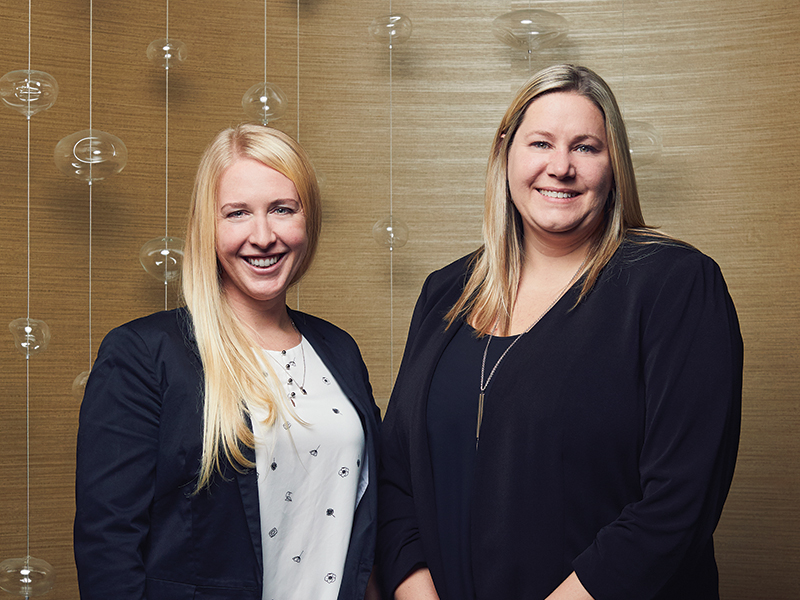
In November 2018, Niagara Casinos set up a pop-up coffee shop, called NC Café, across its three locations for a week. It was part of the company’s annual pension communications strategy, which also includes messaging on the employee intranet, seminars, targeted mailings and plan updates on fee reductions, contribution increases or investment fund changes.
“This plays into our broader plan of financial literacy,” says Jennifer Stassen, the company’s benefits specialist. “All of these tactics try to aid the employees in their finances, both in our pension and in their personal savings, for a successful, happy, positive retirement.”
Innovation is king
Through the café, Niagara Casinos gave away 450 cups of coffee and 700 cookies to demonstrate how much money employees could save by cutting back on small expenses. It also aimed to show how much these little savings could accumulate over time by investing them back into the defined contribution pension plan and tax-free savings account.
Read: Action on financial wellness nabs Niagara Casinos award win
“We always try to do something a little bit fun, unique and outside-the-box to help promote the pension plan and savings ideas,” says Stassen.
The organization engaged plan members with the simplicity of NC Café’s message — small amounts equal big savings. Any initiative that takes the concept of financial wellness and makes it real and relatable for people is beneficial, says Kim McMullen, employee experience consultant at KMC Communication. A campaign like this one is a fresh, innovative way of thinking about financial literacy, she adds. By standing out, it has more of a lasting educational impact on employees than traditional pension plan communications.
After initiatives such as NC Café, Niagara Casinos asks employees for feedback to inform future events. In particular, the company focuses on trending questions, what plan members don’t know and how it can improve its communications strategy. By gathering data from its pension provider, the organization is also able to better understand its employee demographics and plan use.
“We try and build on all these things to continue moving our [employees] towards a positive retirement and positive savings results,” says Stassen.
Get ‘em while they’re young
The aim of the NC Café was to get the attention of Niagara Casinos’ younger generation. Since this group has a much longer period of time to save, these small amounts can accumulate over time, says Stassen. However, it also means younger employees can sometimes be disengaged by pension communications events.
Read: Should employers use social media to communicate pension, benefits?
The idea of bringing the savings concept down to simple dollars and cents can resonate well with younger people because they might not be thinking that way, says McMullen. Retirement isn’t top of mind, so getting them to consider where they’re putting their money in a tangible way is very effective.
“It just seems so far away,” she adds. “People think they’re going to save later, but the years slip by and later doesn’t happen. We always have to find a way to make saving quick and easy, but also get the idea in mind that it needs to happen.”
WORK TO BE DONE
In 2017, Ipsos conducted an online poll to analyze Cana-
dians’ financial literacy. It found:
- 78% of Canadians believe they’re financially literate, but 57% failed Ipsos’ basic financial literacy test;
- Millennials were the most likely (18%) to rate their financial literacy as excellent but were more likely (69%) to fail the test than other generations; and
- 52% of baby boomers passed the test, compared to 45% of generation X and 31% of millennials.
Also, when companies are approaching financial literacy, they often look at it as an educational process, which tends to push information on employees without guaranteeing they’re actually receiving it, says McMullen. “The message of financial wellness and preparedness is a little bit more challenging as it relates to younger generations. They don’t see the immediacy and often other priorities take precedence; they have other places where they need to spend their money or different issues that they’re dealing with.”
Show me the savings
With NC Café, Niagara Casinos set up savings examples, highlighting how much employees could save over a 10-, 20- or 30-year period. It also featured a variety of expenses tailored to different spending habits. The company printed these examples on postcards, so employees could start their savings or increase their voluntary contributions through payroll reduction on the spot.
Read: Goodyear Canada awarded for pun-filled pension communications
“Our employees loved the real-life savings examples provided through this campaign,” says Kate McInnis, compensation analyst at Niagara Casinos. “They could easily see how saving the money they spend on their morning coffee could add up over time.”
The most positive feedback received by the company was the active change employees made to their savings. Around 128 plan members either increased the amount they were contributing or started from scratch with the amount paid into the voluntary pension or TFSA. Overall, Niagara Casinos saw a $7,000 increase in bi-weekly contributions across this group of employees.
The communications campaign is also tied to employees’ overall wellness. Indeed, many companies are embracing a total wellness mindset and focusing on healthy living, says McMullen, noting the connection to financial wellness; it has an impact on stress levels, which has significant bearing on health.
Read: Niagara Casinos’ efforts pay off with pension communications award
“There’s more emphasis on, or need for, financial wellness than ever before. It’s important for organizations to pay attention and actively take some ownership because this trickles down into potential stress issues and disability leaves. It’s one of the factors companies can be addressing.”
Cassandra Williamson-Hopp is a conference editor at Benefits Canada.
